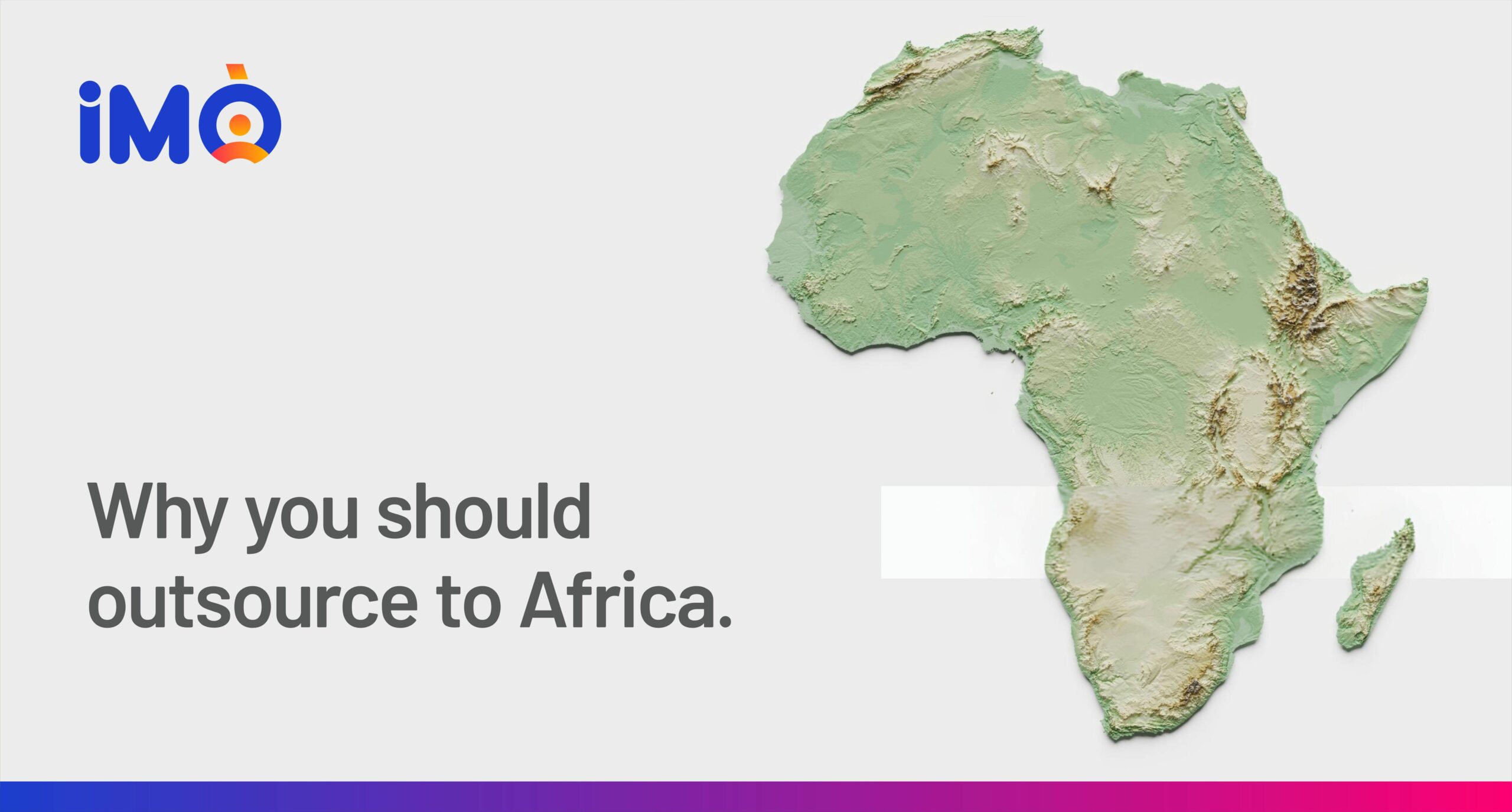One of the Cost-effective growth strategies that has gained significant traction in recent years is outsourcing, and increasingly, companies are turning their attention to Africa as a prime destination for this practice. So, why Africa? The continent presents a wealth of advantages that make it an attractive option for businesses seeking to optimize their operations.
Outsourcing to Africa offers a plethora of benefits, including remarkable cost efficiency, a burgeoning talent pool, and a rapidly developing technological infrastructure. These factors not only help reduce operational costs but also provide access to a diverse range of skills and expertise that can enhance business performance.
One of the primary reasons businesses choose to outsource is to cut costs, and African nations present a compelling case in this regard. The labor costs in many African countries are often significantly lower compared to traditional outsourcing destinations like India or the Philippines. This cost advantage is particularly beneficial for companies that are looking to reduce their operational expenses without compromising on the quality of the services they receive.
By outsourcing to Africa, businesses can not only lower their wage bills but also allocate those savings to other critical areas, such as innovation, marketing, or expansion efforts. This strategic reallocation can enhance overall competitiveness in an increasingly global marketplace. Beyond just labor costs, many African countries also offer competitive pricing across a wide range of services, including IT, customer support, and creative services. The competitive landscape in these markets allows businesses to negotiate favorable rates, ensuring they receive excellent value without sacrificing quality.
Companies can access top-tier services at a fraction of the cost they might incur in other regions. This financial flexibility is crucial for startups and small to medium-sized enterprises that need to keep their costs in check while striving for growth. The ability to secure high-quality services at competitive prices also enables companies to invest in additional capabilities, paving the way for greater innovation and market responsiveness.
Africa is also known as the home to a young and vibrant population, with over 60% of its people under the age of 25. This demographic advantage translates into a dynamic and adaptable workforce that is eager to engage in a variety of industries. The educational initiatives taking root across the continent are producing a growing number of skilled professionals in critical fields such as IT, engineering, healthcare, and customer service. Moreover, many African nations are emphasizing STEM (science, technology, engineering, and mathematics) education, which is crucial for fostering the next generation of innovators and problem-solvers. As these young professionals enter the workforce, they bring fresh perspectives and a willingness to adapt to the evolving demands of global business.
Africa is also witnessing an exciting surge in technology startups and innovation hubs, particularly in dynamic cities like Nairobi, Lagos, and Cape Town. These cities are emerging as vibrant tech ecosystems that foster creativity, collaboration, and problem-solving skills. The establishment of incubators, accelerators, and co-working spaces has created an environment where entrepreneurs can thrive, leading to a wealth of innovative solutions and services.
Businesses looking to outsource can benefit from this ecosystem by tapping into cutting-edge technology and digital solutions that are being developed locally. This rise of tech hubs is also bolstered by increased investment from both local and international venture capitalists, which is fueling growth in sectors such as fintech, healthtech, and agritech. As these startups develop new technologies and platforms, they often prioritize addressing local challenges, creating solutions that are not only innovative but also highly relevant to the African market.
For businesses, collaborating with these tech startups can lead to strategic partnerships that enhance their service offerings and improve operational efficiency. Africa has experienced remarkable growth in mobile technology, leading to innovative solutions that are tailored to local needs. The mobile penetration rate in Africa is among the highest globally, driven by widespread adoption of smartphones and mobile internet access. This proliferation of mobile technology enables businesses to leverage mobile platforms for customer engagement, service delivery, and market expansion.
Companies can utilize mobile apps to reach customers in remote areas, provide essential services, and gather valuable data on consumer behavior. This capability is particularly crucial in sectors like e-commerce, banking, and education, where mobile solutions can bridge the gap between service providers and underserved populations. By embracing mobile technology, businesses can enhance their reach and develop more effective marketing strategies, ensuring they remain competitive in an increasingly digital marketplace.
Language proficiency is another significant asset for African nations, many of which have a strong command of English, French, and other languages. This linguistic diversity facilitates seamless communication for international businesses and enhances collaboration across borders. Countries like South Africa, Kenya, and Nigeria are particularly renowned for their English-speaking workforce, making them attractive options for businesses seeking effective communication in customer service and technical support roles. This language proficiency not only aids in providing high-quality customer experiences but also minimizes the risk of miscommunication, which can be a critical factor in the success of outsourcing relationships.
With the ability to engage in clear and effective dialogue, companies can better manage their operations and respond swiftly to client needs, ultimately driving better business outcomes. The adaptability of African professionals to different working environments and cultures further enhances the appeal of outsourcing to Africa. Many African workers have experience collaborating with international teams and possess a strong willingness to learn and adjust to various operational practices. This flexibility ensures that teams can seamlessly integrate into a company’s existing operations, regardless of geographical location.
The combination of lower labor costs, competitive pricing, a young and skilled workforce, the rise of tech hubs, high mobile penetration, language proficiency, and adaptability positions Africa as an increasingly attractive outsourcing destination. These factors not only grant businesses access to innovative solutions and diverse talent but also enhance their ability to connect with customers and thrive in a rapidly evolving global marketplace. As more companies recognize the potential of outsourcing to Africa, the landscape of global business is set for transformative change.
Whether you are an established enterprise seeking efficiency and innovation or you are smart sourcing, consider how outsourcing to Africa can elevate your business strategy. Don’t miss out on the chance to leverage this dynamic continent for your operational needs.
Contact IMO today to learn more about how we can help you tap into Africa’s vast potential and transform your business for the future.

